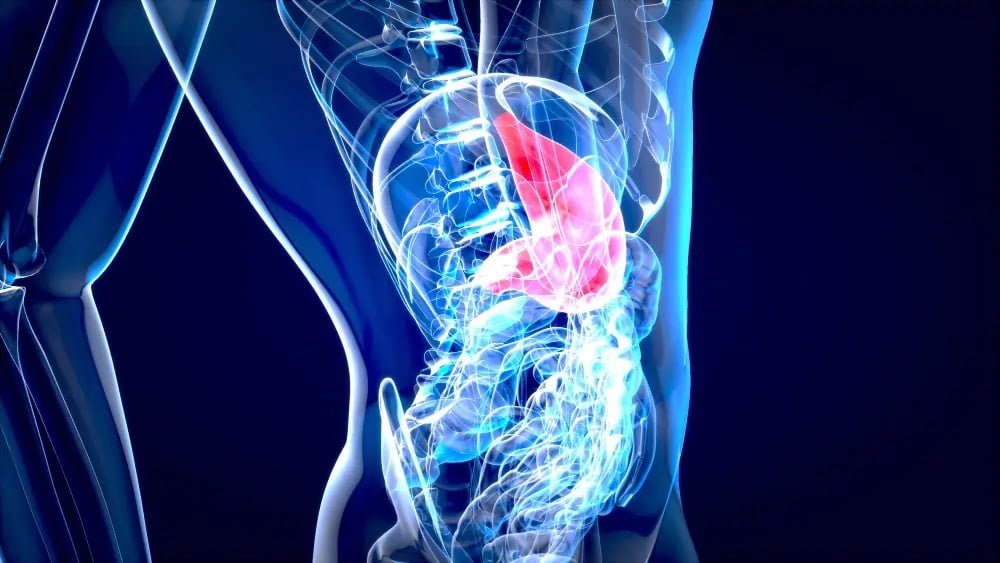Cervical cancer is a major threat to women’s health, especially in low- and middle-income countries. But there is a simple and effective way to prevent it: getting vaccinated against the human papillomavirus (HPV), the main cause of cervical cancer. In this article, we will explain everything you need to know about the HPV vaccine.
What is HPV and how does it cause cervical cancer?
HPV is a very common infection that is transmitted through sexual contact. There are more than 100 types of HPV, but only some of them can cause cancer. The most dangerous types of HPV are 16 and 18, which are responsible for 70% of cervical cancer cases.
Cervical cancer occurs when the cells of the cervix (the lower part of the uterus) grow abnormally and form tumours. Cervical cancer can take many years to develop and often has no symptoms until it is advanced. If left untreated, cervical cancer can spread to other parts of the body and cause death.
According to the World Health Organization (WHO), more than half a million women are diagnosed with cervical cancer every year, and about 85% of them live in low- and middle-income countries. In India, cervical cancer accounts for nearly 23% of all cancer cases among women and causes about 75,000 deaths annually.
What are the benefits of getting vaccinated against HPV?
The HPV vaccine can prevent infection by the most dangerous types of HPV, and thus prevent cervical cancer. The vaccine can also protect against other cancers caused by HPV, such as anal, penile, and throat cancers, as well as genital warts.
The WHO recommends that all girls aged 9 to 14 years receive two doses of the HPV vaccine, with an interval of at least six months between them. The vaccine is most effective when given before the onset of sexual activity, as it cannot treat existing infections. The vaccine does not affect fertility, menstruation, or future pregnancies.
The vaccine is safe, effective, and affordable, and has been approved by the WHO and the Indian regulatory authorities. The vaccine has been used in more than 100 countries and has shown no serious adverse effects.
How does the HPV vaccination campaign work in India?
In India, the government is planning to roll out a nationwide HPV vaccination campaign for girls aged 9 to 14 years in the second quarter of 2024. The campaign will be conducted in three phases over the next three years, covering about 90 million girls across the country. The vaccine will be provided free of cost at health facilities, schools, and community outreach centres. The government will use the indigenously developed Cervavac, a quadrivalent vaccine that protects against four types of HPV (16, 18, 6, and 11).
The HPV vaccination campaign is a major step towards reducing the burden of cervical cancer in India and improving the health and well-being of millions of women. The campaign will also raise awareness and education about cervical cancer prevention, screening, and treatment.
How can you get your daughter’s HPV vaccine for free?
If you are a parent or guardian of a girl aged 9 to 14 years, you should take advantage of this opportunity and get her vaccinated against HPV. The vaccine will not only protect her from cervical cancer but also from other diseases and complications caused by HPV. The vaccine is a one-time investment that will benefit her for a lifetime.
To learn more about the HPV vaccination campaign, you can visit the official website of the Ministry of Health and Family Welfare or contact your nearest health centre. Remember, prevention is better than cure, and HPV vaccination is the best way to prevent cervical cancer.
Conclusion
Cervical cancer is a preventable disease that affects millions of women worldwide. By getting vaccinated against HPV, the main cause of cervical cancer, you can protect yourself and your daughter from this deadly threat. The HPV vaccination campaign in India is a great opportunity to access a free, safe, and effective vaccine that can save lives. Don’t miss this chance and get your daughter vaccinated as soon as possible.
FAQs
Q: What are the side effects of the HPV vaccine?
A: The HPV vaccine is very safe and has no serious side effects. The most common side effects are mild and temporary, such as pain, redness, swelling at the injection site, headache, fever, nausea, and dizziness. These usually go away within a day or two. If you experience any severe or persistent side effects, contact your doctor immediately.
Q: Can the HPV vaccine cause infertility or harm future pregnancies?
A: No, the HPV vaccine does not affect fertility, menstruation, or future pregnancies. The vaccine does not contain any live virus, hormones, or chemicals that can interfere with your reproductive system. The vaccine only protects you from certain types of HPV that can cause cancer and genital warts. The vaccine does not protect you from other sexually transmitted infections or pregnancy. You should still use condoms and other forms of contraception to prevent unwanted pregnancies and infections.
Q: Do boys need the HPV vaccine too?
A: Yes, boys can also benefit from the HPV vaccine. The vaccine can protect them from HPV-related cancers, such as anal, penile, and throat cancers, as well as genital warts. The vaccine can also prevent them from spreading HPV to their sexual partners. The WHO recommends that both girls and boys aged 9 to 14 years receive two doses of the HPV vaccine, with an interval of at least six months between them.
Q: How long does the HPV vaccine last?
A: The HPV vaccine provides long-lasting protection against HPV infection and cervical cancer. Studies have shown that the vaccine remains effective for at least 10 years, and possibly longer. However, the vaccine does not protect against all types of HPV, and it does not treat existing infections or cancers. Therefore, it is important to continue regular cervical cancer screening, such as Pap tests, even after getting vaccinated.
Q: Where can I get the HPV vaccine for free?
A: The HPV vaccine is available for free at health facilities, schools, and community outreach centres across India. The vaccine is part of the nationwide HPV vaccination campaign for girls aged 9 to 14 years, which will start in the second quarter of 2024. The campaign will be conducted in three phases over the next three years, covering about 90 million girls. To learn more about the HPV vaccination campaign, you can visit the official website of the Ministry of Health and Family Welfare or contact your nearest health centre.








 Afrikaans
Afrikaans Albanian
Albanian Amharic
Amharic Arabic
Arabic Armenian
Armenian Azerbaijani
Azerbaijani Basque
Basque Belarusian
Belarusian Bengali
Bengali Bosnian
Bosnian Bulgarian
Bulgarian Catalan
Catalan Cebuano
Cebuano Chichewa
Chichewa Chinese (Simplified)
Chinese (Simplified) Chinese (Traditional)
Chinese (Traditional) Corsican
Corsican Croatian
Croatian Czech
Czech Danish
Danish Dutch
Dutch English
English Esperanto
Esperanto Estonian
Estonian Filipino
Filipino Finnish
Finnish French
French Frisian
Frisian Galician
Galician Georgian
Georgian German
German Greek
Greek Gujarati
Gujarati Haitian Creole
Haitian Creole Hausa
Hausa Hawaiian
Hawaiian Hebrew
Hebrew Hindi
Hindi Hmong
Hmong Hungarian
Hungarian Icelandic
Icelandic Igbo
Igbo Indonesian
Indonesian Irish
Irish Italian
Italian Japanese
Japanese Javanese
Javanese Kannada
Kannada Kazakh
Kazakh Khmer
Khmer Korean
Korean Kurdish (Kurmanji)
Kurdish (Kurmanji) Kyrgyz
Kyrgyz Lao
Lao Latin
Latin Latvian
Latvian Lithuanian
Lithuanian Luxembourgish
Luxembourgish Macedonian
Macedonian Malagasy
Malagasy Malay
Malay Malayalam
Malayalam Maltese
Maltese Maori
Maori Marathi
Marathi Mongolian
Mongolian Myanmar (Burmese)
Myanmar (Burmese) Nepali
Nepali Norwegian
Norwegian Pashto
Pashto Persian
Persian Polish
Polish Portuguese
Portuguese Punjabi
Punjabi Romanian
Romanian Russian
Russian Samoan
Samoan Scottish Gaelic
Scottish Gaelic Serbian
Serbian Sesotho
Sesotho Shona
Shona Sindhi
Sindhi Sinhala
Sinhala Slovak
Slovak Slovenian
Slovenian Somali
Somali Spanish
Spanish Sundanese
Sundanese Swahili
Swahili Swedish
Swedish Tajik
Tajik Tamil
Tamil Telugu
Telugu Thai
Thai Turkish
Turkish Ukrainian
Ukrainian Urdu
Urdu Uzbek
Uzbek Vietnamese
Vietnamese Welsh
Welsh Xhosa
Xhosa Yiddish
Yiddish Yoruba
Yoruba Zulu
Zulu